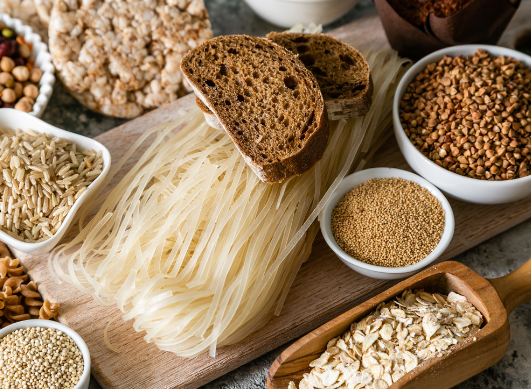- Home
- Share
- Forum
- General forums
- News from the media
- Newly-discovered anti-inflammatory substances may potentially treat variety of diseases
Newly-discovered anti-inflammatory substances may potentially treat variety of diseases
- 44 views
- 0 support
- 1 comment
All comments

Unregistered member
05/06/2018 at 03:02
That's half the world with bated breath?? Scientists are finding new substances all of the time. At sometime in the future all aliments will be curable? Thing's we could never dream of will become the 'norm' and medicines will cure anything and everything, just not necessarily in our time?
Give your opinion
Survey
Articles to discover...

14/03/2025 | Nutrition
Carbohydrates: Friend or foe? Everything you need to know to make the right choices!
Subscribe
You wish to be notified of new comments
Your subscription has been taken into account







Margarita_k
Community managerGood advisor
Margarita_k
Community manager
Last activity on 07/10/2020 at 11:39
Joined in 2016
1,195 comments posted | 154 in the News from the media group
1 of their responses was helpful to members
Rewards
Good Advisor
Contributor
Messenger
Committed
Explorer
Evaluator
Inflammation, and in particular chronic inflammation, are major contributors to a large number of diseases, such as cancer, acute pancreatic inflammation, fatty liver disease, diabetes, ulcerative colitis, Crohn's disease, rheumatoid arthritis, chronic liver disease, atherosclerosis, multiple sclerosis, and many others. These pathological conditions are associated with the release of substances, known as pro-inflammatory cytokines, by the immune system. These substances participate in the neutralization of invading pathogens, repair injured tissues, and promote wound healing. However, during chronic or excessive activation of the immune system, when these cytokines are released in an uncontrolled manner, they can lead to unnecessary inflammation that frequently causes tissue damage.
In addition, a family of substances, designated as reactive oxygen species (ROS) is also among the major contributors to many chronic diseases. ROS are involved in oxidation processes. Although oxidative reactions catalyzed by ROS are of great importance in metabolic processes and removal of toxic substances from the body, they are also involved in major damage to cells and tissues leading to cell death, possible DNA mutations and aging. Though the presence of oxygen is necessary for maintaining life, oxygen and its derived products (ROS) are involved in a variety of toxic effects. It has been said that "without oxygen we die but oxygen kills us."
Prof. Abraham Nudelman and his graduate student Shani Zeeli, from the Department of Chemistry at Bar-Ilan University, in collaboration with Prof. Marta Weinstock and her students and assistants from the School of Pharmacy at the Hebrew University, have discovered a new family of substances which has been found to display highly potent activity against the release of pro-inflammatory cytokines and the toxicity induced by ROS. Their findings were recently published in the Journal of Medicinal Chemistry, and in other early papers.
The novel compounds synthesized and evaluated belong to a family of low molecular weight substances named indolines. In early experiments, these compounds have shown promising activity in the treatment of acute pancreatic inflammation, acute fatty liver damage, and diabetes.
"It is expected that further studies in humans will reveal the potential usefulness of these substances in the treatment of a variety of diseases where inflammation is a major contributor to the disease," says Prof. Nudelman, a lead author of the paper. Further studies on the influence of these compounds on these diseases, and other pathological conditions, are being conducted.
This research program has been supported by the Israel Ministry of Science and Technology, and by the Marcus Center for Medicinal Chemistry at Bar-Ilan University.
Science Daily